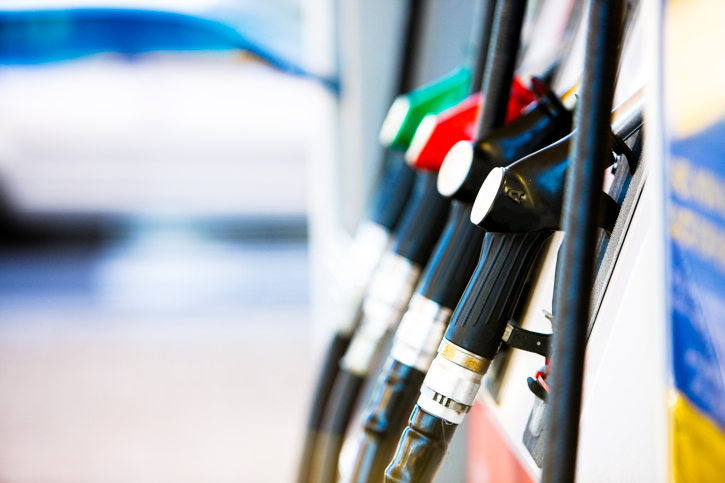The U.S. Energy Information Administration (EIA) released data that show the average American household spent $2,912 on gas last year, just under 4% of income before taxes. Except for in 2008, this number is a three-decade high. If the amount has damaged consumer activity, and it almost certainly has, perhaps the federal gas tax is too high.
The gas price effect on household finances is real. The EIA report shows that “the 3.3% estimated gasoline price rise in 2012 outpaced the 2.9% estimated increase in income.” Consumer spending remains more than two-thirds of gross domestic product, and government officials and economists continue to argue about how Americans might be induced to spend more money. A reduction in the gas tax is one way.
The current federal gas tax is 18.4 cents a gallon. That is about 5% of the total price of a gallon of gas, based on data from the AAA. An increase of the gas tax has been mentioned as a way to close the deficit. Members of Congress have suggested that very thing. That puts the gas tax into the same category as income taxes. How much can Americans be taxed before they return to the financial shells in which most lived during the recession?
One argument against a gas tax reduction is that it would help rich and poor alike. The billionaire who drives 100 miles a week would get the same break as a family that makes $50,000 and drives as much. An income tax would appear to be a better way to level the tax field. But that point of view is short-sighted.
People who drive long distances get the advantage of lower tax prices immediately. The financial harm higher income taxes have on family finances may take much longer to sink in. The fact that the rich may be helped does not offset the benefit that the driver who commutes or goes to school gets each and every day. The savings are “money in the pocket,” and that money shows up right away.
Income tax rates may be dropped again if Washington believes they are regressive and hurt government deficits more than help them. But a gas tax by its nature is regressive, at least for people who have to drive.
The Average American Has No Idea How Much Money You Can Make Today (Sponsor)
The last few years made people forget how much banks and CD’s can pay. Meanwhile, interest rates have spiked and many can afford to pay you much more, but most are keeping yields low and hoping you won’t notice.
But there is good news. To win qualified customers, some accounts are paying almost 10x the national average! That’s an incredible way to keep your money safe and earn more at the same time. Our top pick for high yield savings accounts includes other benefits as well. You can earn up to 3.80% with a Checking & Savings Account today Sign up and get up to $300 with direct deposit. No account fees. FDIC Insured.
Click here to see how much more you could be earning on your savings today. It takes just a few minutes to open an account to make your money work for you.
Our top pick for high yield savings accounts includes other benefits as well. You can earn up to 4.00% with a Checking & Savings Account from Sofi. Sign up and get up to $300 with direct deposit. No account fees. FDIC Insured.
Thank you for reading! Have some feedback for us?
Contact the 24/7 Wall St. editorial team.
